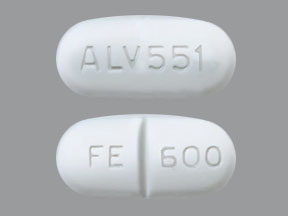
Felbatol Coupons & Savings Card – Discount Prices from $111.56
Brand for: Felbamate
My prescription
Edit
600MG, Felbamate (180 Tablets)
Select pharmacy

CVS
$111.56
COUPON PRICE
Walgreens
$230.40
COUPON PRICE
Walmart
$235.70
COUPON PRICE
Albertsons
$249.64
COUPON PRICEFelbatol savings card
Show this card to your pharmacist
CVS
$111.56
BIN
ID
PCN
GRP
015995
LHKPY243620
GDC
DR33
Powered by
Related anti-epileptics prescriptions
More prescriptions for lennox-gastaut syndrome
Related anti-epileptics prescriptions
More prescriptions for lennox-gastaut syndrome
Price history for Felbatol (brand) & Felbamate (generic)
180 Tablets, 600MG
Average retail price for Felbatol
Average retail price for Felbamate
Average SaveHealth price for Felbamate
Our price history data is based on aggregated prescription data collected from participating pharmacies in America. Our prescription data updates daily to reflect the latest price changes. If you notice a missing data point, it means there wasn't sufficient data available to generate a monetary value for that date.
Over the last 12 months, the average discount price of Felbatol is $239.76 using the SaveHealth savings card. That's an average savings of 88.49% on Felbatol with our discount card.
*Retail prices are based on pharmacy claims data, and may not be accurate when we don't have enough claims.
Felbatol (Felbamate) dosage forms
Dosage Quantity Price from Per unit 400MG 90 Tablets $58.15 $0.65 400MG 100 Tablets $62.58 $0.63 400MG 120 Tablets $71.44 $0.59 600MG 180 Tablets $128.39 $0.71 600MG 90 Tablets $73.34 $0.81 600MG 100 Tablets $79.46 $0.80
| Dosage | Quantity | Price from | Per unit |
|---|---|---|---|
| 400MG | 90 Tablets | $58.15 | $0.65 |
| 400MG | 100 Tablets | $62.58 | $0.63 |
| 400MG | 120 Tablets | $71.44 | $0.59 |
| 600MG | 180 Tablets | $128.39 | $0.71 |
| 600MG | 90 Tablets | $73.34 | $0.81 |
| 600MG | 100 Tablets | $79.46 | $0.80 |
What is Felbatol used for?
Felbatol is used as an anticonvulsant medication to treat certain types of seizures in individuals with epilepsy. It is often prescribed for partial seizures and Lennox-Gastaut syndrome, a severe form of epilepsy.
How much is Felbatol without insurance?
The cost of Felbatol (felbamate) without insurance can vary significantly depending on the pharmacy and location. On average, the price for a 30-day supply of Felbatol can range from several hundred to over a thousand dollars. It is advisable to check with local pharmacies for specific pricing and to inquire about any available discount programs or coupons that might help reduce the cost.
What are the risks of felbamate?
Felbamate carries several significant risks, including the potential for serious side effects such as aplastic anemia and liver failure. These conditions can be life-threatening and require careful monitoring. Other possible side effects include gastrointestinal issues, insomnia, dizziness, and weight loss. Due to these risks, felbamate is typically reserved for cases where other treatments have failed or are not suitable. It is important for patients to be closely monitored by their healthcare provider while taking this medication.
What are the side effects of felbamate in dogs?
Felbamate can cause several side effects in dogs. Common side effects may include gastrointestinal issues such as vomiting and diarrhea. Some dogs may also experience changes in appetite or lethargy. More serious side effects, although less common, can include liver toxicity and blood disorders. It is important for a veterinarian to monitor a dog closely while on felbamate to manage any potential adverse effects.
How much does Felbatol cost?
The cost of Felbatol (felbamate) can vary depending on factors such as the pharmacy, location, dosage, and whether the patient has insurance coverage. It is recommended to check with local pharmacies or online resources for the most accurate and up-to-date pricing information. Additionally, patients may want to consult with their healthcare provider or insurance company to explore potential cost-saving options or assistance programs.
